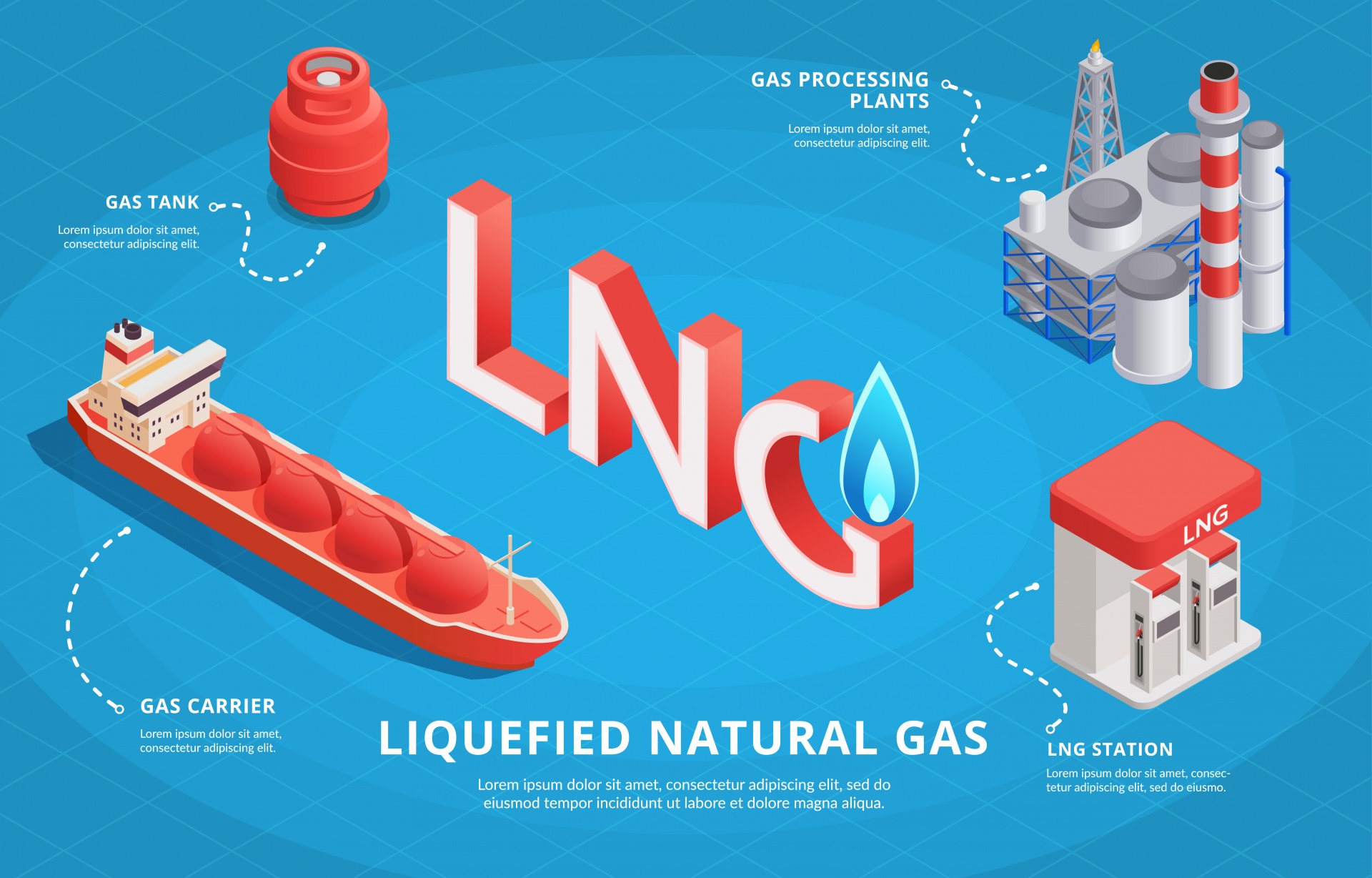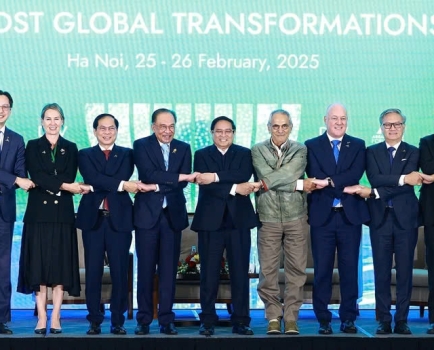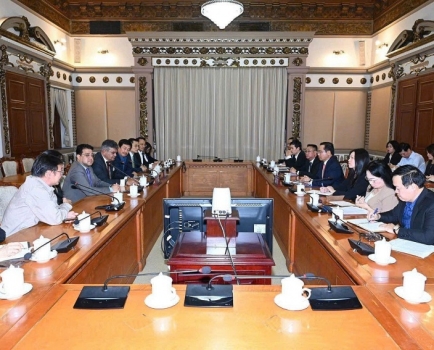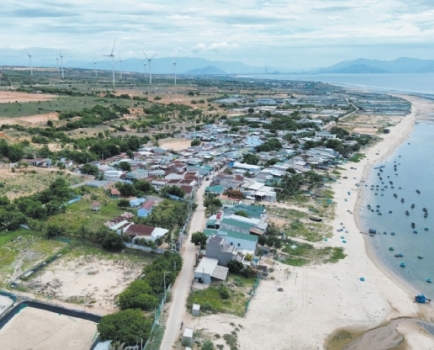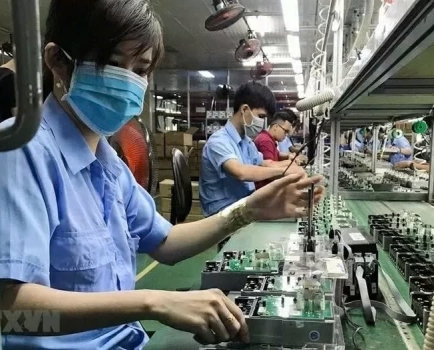Vietnam's LNG power projects face contractual hurdles and rising import costs
Tue, 29 Aug 2023 14:05:00 | Print | Email Share:
Vietnam's ambitious journey into liquefied natural gas (LNG) power projects is facing stumbling blocks, as protracted contract negotiations threaten the progress of key initiatives.
Nguyen Duy Giang, deputy director general of PV Power, a prominent power company in Vietnam, highlighted the challenges surrounding the Nhon Trach 3&4 LNG power projects.
"The most challenging aspect at present is the protracted power purchase agreement (PPA) negotiations between PV Power and the Vietnam Electricity (EVN)," Giang said.
According to Giang, while PPA discussions have spanned two years, an official agreement remains elusive. The sticking point seems to be the commitment to annual electricity volume from EVN's end.
"PV Power proposed a guaranteed annual electricity output of 90 per cent for a 15-year term, coinciding with the project's debt repayment duration. However, the purchasing party deemed this proposal unprecedented and seeks additional opinions from higher authorities. We have encountered numerous complications and require governmental support to overcome them," he said.
Another pressing concern is the pricing and guarantee of annual power outputs, along with the high cost of imported LNG. These concerns echo the sentiments of Thai Thanh Phong, deputy director of Dong Nai Department of Industry and Trade, who emphasised the importance of harmonising power rates and adjusting to the fluctuating costs of LNG.
Phong said, “The Nhon Trach 3&4 LNG power plants are progressing on schedule, with commercial operations of unit 1 anticipated in 2024 and in 2025 for the subsequent units. However, the project still faces challenges relating to LNG imports, gas pricing policies, and storage, which complicate contract finalisation. Furthermore, EVN has not yet agreed on electricity purchasing prices with the project owner.”
Investors in LNG power projects are finding their biggest hurdles to be the negotiations on electricity prices and annual power offtake commitments.
Giang added, “Nhon Trach 3&4 are Vietnam's inaugural LNG power projects, and no precedent exists for volume-guaranteed contracts for such undertakings. Hence, PV Power permits LNG projects to transfer gas prices to electricity costs, pledging a long-term annual electricity volume to ensure efficient capital mobilisation.”
He noted that if firms lack government backing and electricity guarantees, executing projects on schedule becomes implausible. If this issue remains unresolved, other LNG projects might also become unfeasible.
LNG-based electricity projects are pivotal to Vietnam's pledge of net-zero emissions by 2050, as committed by the Prime Minister Pham Minh Chinh at COP26.
Existing LNG plants face challenges
According to EVN, there has been a sharp decline in the Southeast's gas supply from PetroVietnam and PV Gas since 2020, owing to declining gas field outputs.
Meanwhile, PV Gas also revealed that by 2024, the natural gas supply in the southeastern region is expected to only meet around 33 per cent of the fuel requirements for power plants.
Consequently, PV Gas has proposed LNG as a supplementary or replacement fuel.
In light of dwindling domestic natural gas supplies, EVN asserts that there is a pressing need to consider supplementing existing power plants with imported LNG.
This is particularly true for the build-operate-transfer (BOT) Phu My 2.2 and Phu My 3 thermal power plants.
After their handover to Vietnamese authorities in 2024 for Phu My 3 and 2025 for Phu My 2.2, they will solely rely on imported LNG for fuel. The shift is attributed to the cessation of domestic natural gas commitments for both plants, as contracts related to the BOT project conclude and domestic suppliers allocate their gas to other long-term consumer contracts.
However, incorporating imported LNG poses challenges.
An energy consultant revealed, "The cost of bringing LNG to Vietnam currently stands between $10-12 per million BTUs. When considering storage, regasification, and transport expenses, the price at the gateway to the Phu My power plants will reach $12-14 per million BTUs, a staggering 50 per cent higher than existing domestic gas prices."
This elevation in cost will inevitably boost the power generation expenses of these plants, leading to increased electricity purchasing costs for EVN and potential repercussions for the economy.
Given the recent global market fluctuations and volatile fuel prices, EVN urges scrutiny of the commitments regarding fuel offtake guarantees. These need to be aptly synchronised with the operational capacities of power plants at different stages to minimise contractual risks.
Moreover, EVN suggests recalibrations if PV Gas, which operates existing gas pipelines, takes charge.
EVN highlighted, "The transportation tariffs for previously operational pipelines, which have recovered their investment costs, should be reevaluated. Redundant charges while integrating LNG sources should also be avoided," adding that these changes should be reported to the Ministry of Industry and Trade for approval as per the Pricing Law.
By: Luu Huong/ Vietnam Investment Review
Source: https://vir.com.vn/vietnams-lng-power-projects-face-contractual-hurdles-and-rising-import-costs-104758.html
---------------------------------------------
Same category News :



